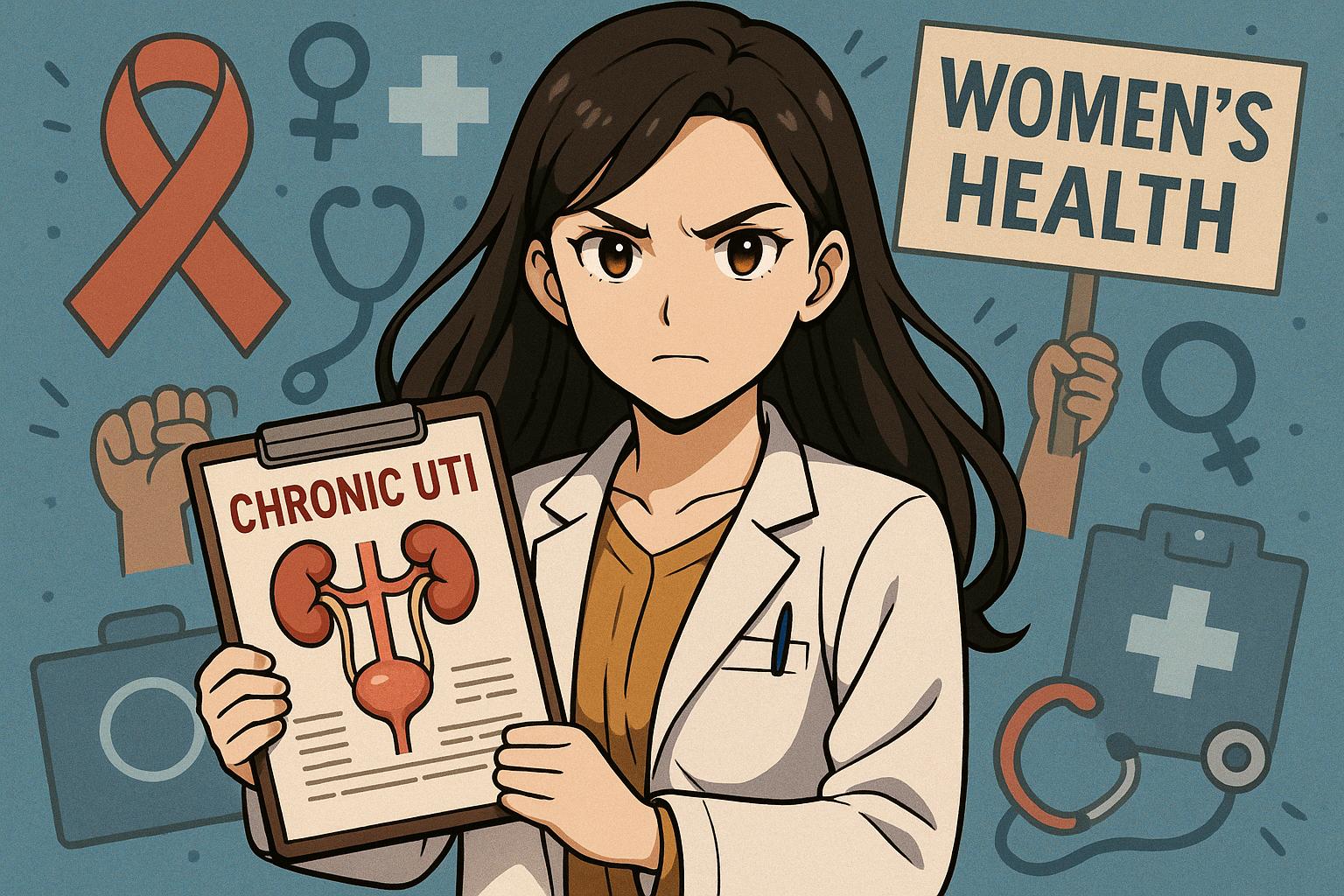Chronic urinary tract infections (UTIs) represent a significant, albeit often overlooked, challenge for many women. While discussions surrounding women's health have gained traction in recent years, the plight of those suffering from chronic UTIs continues to highlight systemic issues in medical treatment and understanding. Gardner, who only received a diagnosis in 2023, encapsulates this struggle, illustrating the far-reaching impacts of a condition that not only hinders physical health but also personal relationships and professional aspirations.
Despite being a common ailment, chronic UTIs disproportionately affect women, with estimates suggesting they are three times more likely than men to experience these infections. Yet, many women face misdiagnosis, minimal treatment, and dismissal of their symptoms as mere inconveniences. Gardner poignantly noted, “You would never say to a man who has erectile dysfunction: 'Well, you'll just have to give up sex.’ Yet this is what happens with women all the time.” Her painful experiences exemplify how medical misogyny can manifest in the healthcare system, where women's issues are frequently trivialised or inadequately addressed.
The complexities of chronic UTIs often lead to a cocktail of medication, yet as Gardner attests, this does not guarantee relief from flare-ups. The emotional and physical toll is compounded by everyday choices; she now avoids foods and activities she once enjoyed, such as tomatoes and baths, which might trigger another infection. Research indicates that many women in similar situations report dissatisfaction with their treatment options, particularly regarding the over-prescription of antibiotics that can lead to resistance, as found in a recent study led by UCLA and Cedars-Sinai.
Another challenge is the limited recognition of chronic UTIs within medical guidelines. Gardner is advocating for the formation of a cross-party parliamentary group aimed at elevating the conversation about this condition, emphasising the need for the National Institute for Health and Care Excellence (NICE) to develop clearer guidelines. A spokesperson for NICE acknowledged an update to their guidelines on recurrent UTIs in December, asserting their commitment to regular reviews in response to new evidence.
Moreover, the societal implications of chronic UTIs cannot be understated. Recent analyses reveal that over ten per cent of women affected by chronic UTIs have left the workforce due to their condition, illustrating the economic toll of inadequate healthcare responses. Campaigners and MPs have raised concerns about the Health Strategy in the UK, pointing to the alarming gap in provisions for women suffering from chronic UTIs. The need for comprehensive research, better diagnostic tools, and a cultural shift in recognising female pain is pressing. As highlighted in personal accounts from various women, including ongoing frustrations with unhelpful medical advice, the issue extends beyond the individual to encroach on the broader discourse surrounding women's health.
Furthermore, the stigma associated with chronic UTIs often compounds the difficulties these women face in seeking help. Misdiagnoses and the perception that their symptoms are exaggerated lead many to feel gaslighted by the very healthcare system designed to support them. This pervasive environment emphasises an urgent need for heightened awareness and improved treatment strategies that acknowledge the unique hurdles women encounter.
Gardner's mission to lobby for better understanding and recognition of chronic UTIs speaks to a larger wave of advocacy for women's health—a movement aiming to dismantle the barriers that so many women still grapple with today. If successful in gaining NICE's endorsement for clearer guidelines, such efforts could mark a significant step towards addressing the disparity in treatment and recognition of a condition that affects millions of women.
Reference Map
- Lead article: Impact of chronic UTIs on Gardner's life and advocacy efforts.
- Misdiagnosis and mistreatment of women with chronic UTIs.
- Research findings on dissatisfaction with UTI treatment and antibiotic overuse.
- Personal accounts of the challenges faced by women with chronic UTIs.
- Investigative report on the stigma and inadequate treatment of chronic UTIs.
- Economic consequences of chronic UTIs and their exclusion from the Women's Health Strategy.
- Personal stories reflecting the broader implications of chronic UTIs.
Source: Noah Wire Services
